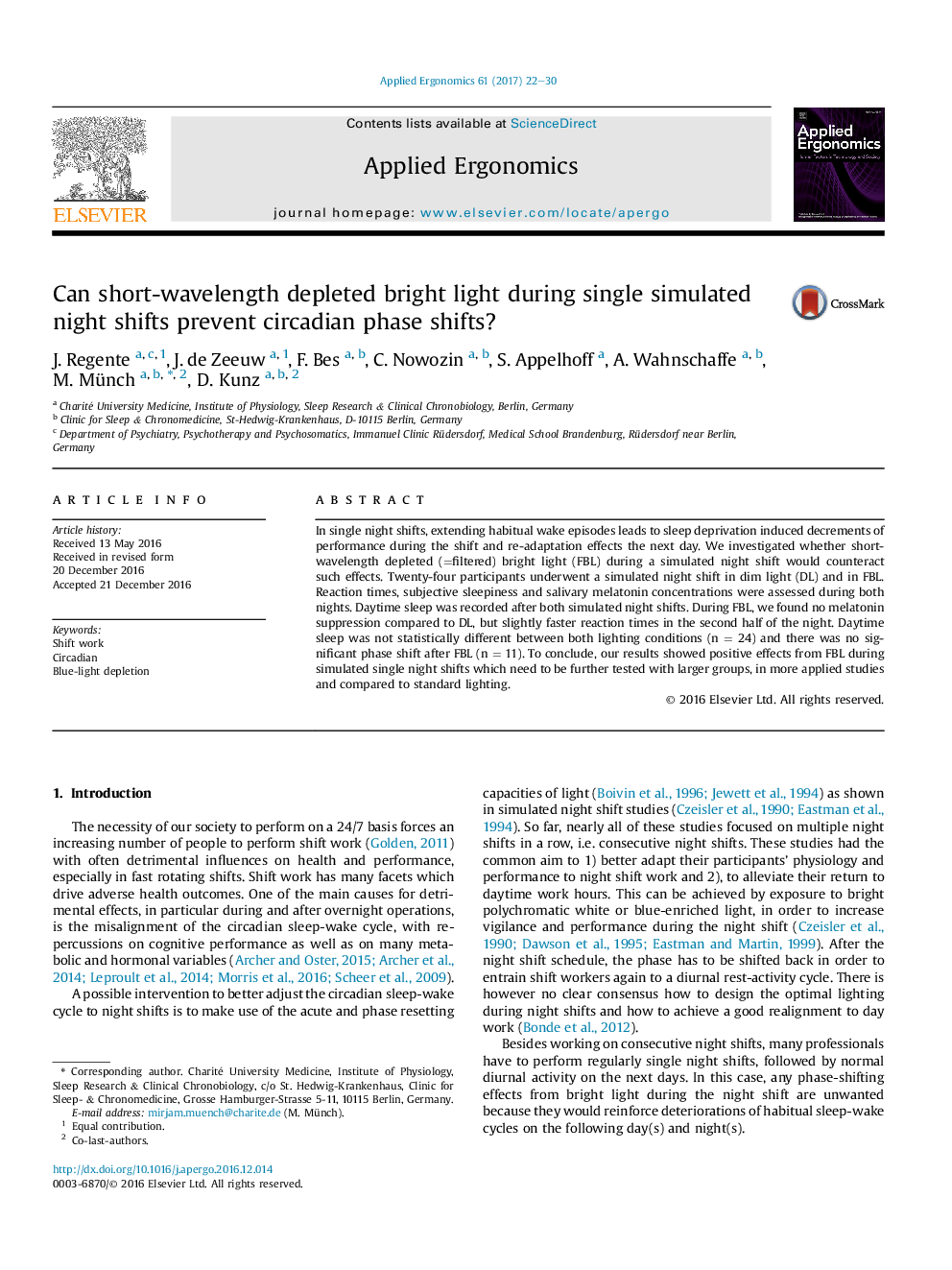| کد مقاله | کد نشریه | سال انتشار | مقاله انگلیسی | نسخه تمام متن |
|---|---|---|---|---|
| 4972017 | 1450709 | 2017 | 9 صفحه PDF | دانلود رایگان |
عنوان انگلیسی مقاله ISI
Can short-wavelength depleted bright light during single simulated night shifts prevent circadian phase shifts?
ترجمه فارسی عنوان
آیا نور روشنایی کم نور در طول شبیه سازی شبانه شبیه سازی شده، مانع تغییر فاز شبانه می شود؟
دانلود مقاله + سفارش ترجمه
دانلود مقاله ISI انگلیسی
رایگان برای ایرانیان
کلمات کلیدی
کار تغییر، دوران کودکی، تخلیه آبی رنگ،
موضوعات مرتبط
مهندسی و علوم پایه
مهندسی کامپیوتر
تعامل انسان و کامپیوتر
چکیده انگلیسی
In single night shifts, extending habitual wake episodes leads to sleep deprivation induced decrements of performance during the shift and re-adaptation effects the next day. We investigated whether short-wavelength depleted (=filtered) bright light (FBL) during a simulated night shift would counteract such effects. Twenty-four participants underwent a simulated night shift in dim light (DL) and in FBL. Reaction times, subjective sleepiness and salivary melatonin concentrations were assessed during both nights. Daytime sleep was recorded after both simulated night shifts. During FBL, we found no melatonin suppression compared to DL, but slightly faster reaction times in the second half of the night. Daytime sleep was not statistically different between both lighting conditions (n = 24) and there was no significant phase shift after FBL (n = 11). To conclude, our results showed positive effects from FBL during simulated single night shifts which need to be further tested with larger groups, in more applied studies and compared to standard lighting.
ناشر
Database: Elsevier - ScienceDirect (ساینس دایرکت)
Journal: Applied Ergonomics - Volume 61, May 2017, Pages 22-30
Journal: Applied Ergonomics - Volume 61, May 2017, Pages 22-30
نویسندگان
J. Regente, J. de Zeeuw, F. Bes, C. Nowozin, S. Appelhoff, A. Wahnschaffe, M. Münch, D. Kunz,
